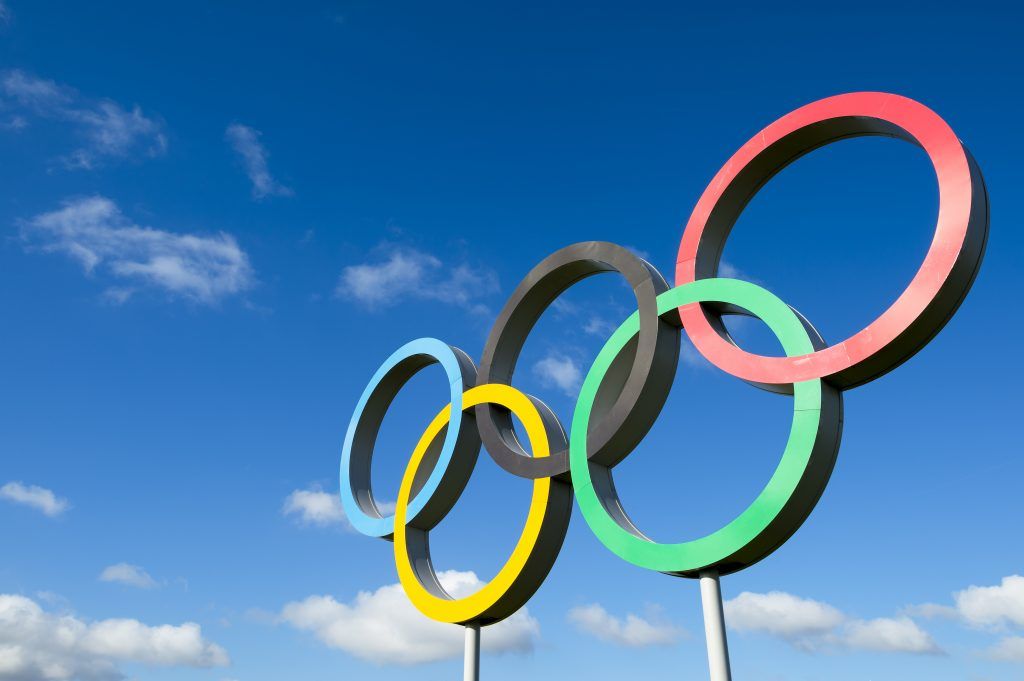The Olympic Truce: Giving peace a chance
By Alanna Richards | January 31, 2018

When global tension builds, people often think that world peace is an impossible goal. We so easily forget how nations come together, despite conflict, every two years for the Olympic Games. These sporting events allow countries to remember what they stand for, rather than what they stand against.
As an extension of the games, the Olympic Truce—a tradition dating back to ancient Greece—allows for the safe travel of athletes and spectators alike. It demands peace among participating nations seven days before the games and seven days afterward. The truce allows athletes to represent the hope of global harmony triumphing over conflict and war.
I have experienced the unifying power of sports, as someone who has played soccer through the collegiate level. Soccer competitions enabled me to connect with girls of different backgrounds, ethnicities, and fundamental beliefs.
After traveling to Mexico, Haiti, and Uganda to play soccer, I am struck by the ways that sports have served as a bridge in the global community. This is something that goes far beyond the playing arena, transcending age, language, and boundaries. Whether I am playing with or against someone in soccer, we become united in the competition of the game, and our differences dissipate on the field. That spirit of unity can do much to dispel the cloud of conflict hanging over the Korean peninsula.
A tradition reborn. The tradition of the Olympic Truce began when King Iphitos of Elis wished to spark regional reconciliation through sports. The Olympics are intertwined with legend, making it difficult to pinpoint the date of the first games, but most historians believe it was during the 9th century BCE. A treaty signed by Iphitos and two other kings allowed warring nations to come together in a peaceful atmosphere. With the support of other nations, conflict came to a halt during the Olympics out of respect for the truce.
The Olympic games continued for some time, despite the power shift from Greek to Roman authority. However, since the games were conceived as a way to honor Zeus, Rome’s Christian emperors ended the athletic competition by the 3rd century CE. The games didn’t restart until 1896.
During the Bosnian War in 1992, the International Olympic Committee reintroduced the concept of the Olympic Truce, and in 1993 the United Nations General Assembly passed a resolution calling on all nations to observe the truce. The Bosnia and Herzegovina four-man bobsled team served as an example of the Olympic spirit—with one Croat, two Muslims, and a Serb representing the three ethnic factions that were then fighting for control of Sarajevo. Despite the high levels of tension surrounding the conflict, the team performed with composure. The resolution of “building a peaceful and better world through sport and the Olympic ideal” has been adopted by the UN General Assembly in advance of every Olympics since then.
A teachable moment. Every host nation comes up with specific ways to implement the Olympic Truce within their country. During the 2008 Beijing Olympics, for example, children from 210 Chinese schools contacted more than 300 Olympic and Paralympic committees in other countries, which allowed them to connect with schools in those parts of the world. China also established exchange programs to allow kids to learn more about sports and other cultures.
Four years later, the United Kingdom implemented an educational program called “Get Set for the Olympic Truce” for the 2012 London Games. Some 24,000 schools taught children about the truce. One key aspect included discussions and creative projects that fostered conflict resolution in local communities.
More than anything else, the Olympic Village transforms boundaries and hostilities into a global community built on what binds people together. The Olympic Truce teaches athletes, spectators, children, and global leaders what it means to put aside their differences.
A step toward peace. During the past year, fear of nuclear destruction has crept back into the minds of people around the world, especially Americans and Koreans. This anxiety is fueled by the impulsive rhetoric of US President Donald Trump and North Korean leader Kim Jong-un. In his New Year’s Day speech, Jong-un announced that his country had acquired significant nuclear capability and would use it if threatened by the United States. Trump responded with a tweet claiming that he had bigger, more effective nuclear weapons.
Now more than ever, it is valuable for North Korea, South Korea, and the United States to participate in the upcoming Olympic Games—which means adhering to the Olympic Truce. The truce does not solve the conflicts raised by North Korea’s development of nuclear weapons, nor does it promise any long-term safety, but it does provide an opportunity to exercise empathy and compromise among nations.
North Korea boycotted the 1988 Summer Olympics in Seoul and has not participated in any Winter Olympics since 2010. Recently, however, North and South Korea announced that their athletes will march under a unified Korea flag at the opening ceremony of the 2018 Winter Olympic Games—which will be held next month in Pyeongchang, South Korea. North and South Korea will also field a joint women’s ice hockey team, a first in Olympic history (in other events, the two Koreas will compete separately). Simply by participating in the games, North Korea is extending the hope of reconciliation to many.
Even though the two Koreas and other nations will vie against one another at the games, they will do so in a spirit of mutual respect and friendship. This same spirit could do much to advance political negotiations.
While the prospect of a temporary truce has raised hopes on the Korean peninsula, high tensions remain. North and South Korea were supposed to come together before the games to participate in a joint cultural event hosted by North Korea—with K-pop bands, other musicians, and art troupes—but North Korea backed out on January 29. Even more worrisome are the polls: Young South Koreans are skeptical about whether the Olympics will have a long-term impact on reconciliation between them and their northern counterparts.
However, Olympic participation is not a given. The choice to march and compete together will allow athletes to inform their leaders about how international relations could look. By pushing the world to see past Kim Jong-un and to look instead at athletes from his country, who are more similar to Americans than we might think, we can glimpse the humanity of North Korea and ourselves.
Clearly, the problems on the Korean Peninsula are complex. The Olympic Truce will not solve the conflict permanently, but it can ease hostility enough to allow for healthy conversation. This is an important step in the right direction: toward peace.
Together, we make the world safer.
The Bulletin elevates expert voices above the noise. But as an independent nonprofit organization, our operations depend on the support of readers like you. Help us continue to deliver quality journalism that holds leaders accountable. Your support of our work at any level is important. In return, we promise our coverage will be understandable, influential, vigilant, solution-oriented, and fair-minded. Together we can make a difference.
Topics: Nuclear Weapons, Voices of Tomorrow















